While waiting for my book on Larry Bird’s high school basketball days to be released, I occasionally think about lesser known events involving Larry and the Springs Valley teams he played on, stories that have not gained much attention but are still an important part of that Indiana high school basketball time and place. For example, who were the few teams that defeated Springs Valley in the regular season during the two years Larry played varsity?
It is a rare and special group, those unique players and coaches that are able to say they had beaten a Springs Valley team that included Larry Bird. Although I discuss these teams in my book, I want to look at a particular team and game in this narrative, a contest few basketball fans today are probably aware of. Also, in researching and writing this, I was reminded too of Springs Valley player Steve Land’s mostly forgotten contributions. But first, some back story.
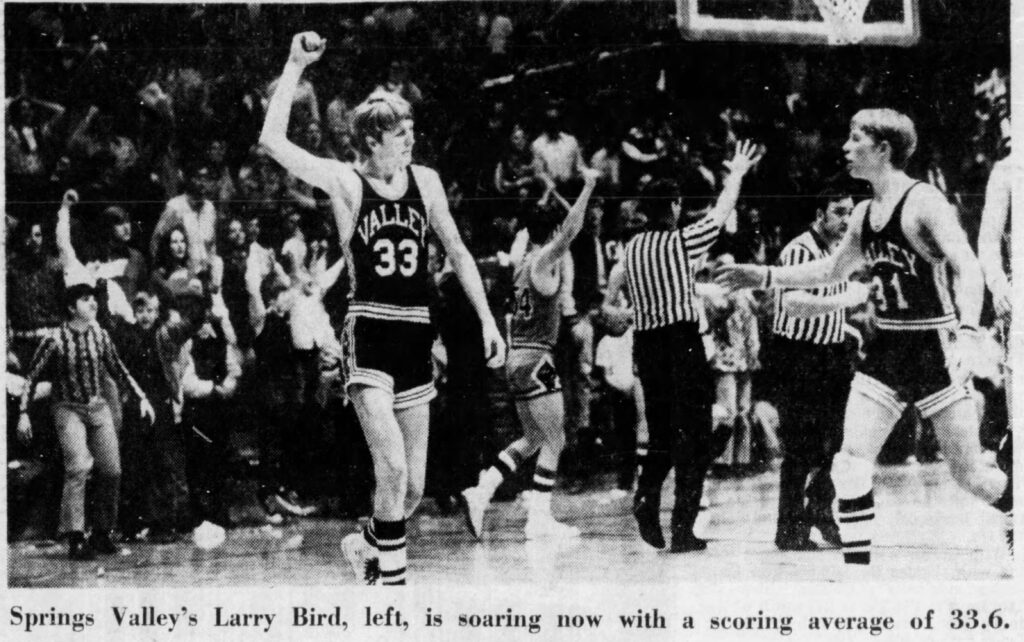
Bird played in only two varsity games his sophomore year and that was during the sectional where he scored a total of eight points. Larry then started his junior year, 1972-1973, and Valley went 18-2.
The 72-73 squad, however, was a Steve Land led team, with two other solid senior starters, Danny King and Tony Clark. Junior Larry Bird and sophomore Brad Bledsoe filled out the rest of the starting five crew with John and Beezer Carnes most likely to come off the bench. Land would set single game and career game scoring and rebounding records by the end of that season. In the regular season that year, only Corydon and Loogootee had been able to take down Valley, the latter game won on a last second shot. Loogootee ended up 16-3 in regular season action that year and made it to the first round of regional tourney play. Corydon, who ended the season below .500, caught Valley on a rare off night.
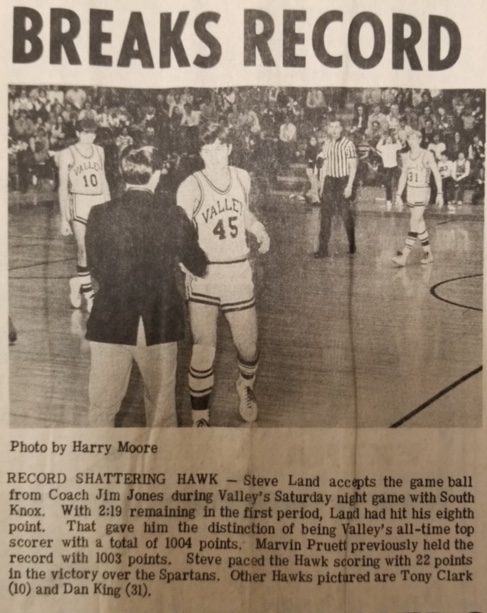
The next year, 1973-1974, Bird was a senior and led his team to a record of 17- 3 in the regular season. Larry had an explosive year, a breathtaking increase in growth and skills it almost seemed magical. He erased all of Land’s records, except those Steve had achieved in Blue Chip conference play. But there were a few losses. Loogootee won in another down-to-the-wire contest, and Orleans got them in the Holiday tournament. And then there were the Hatchets.
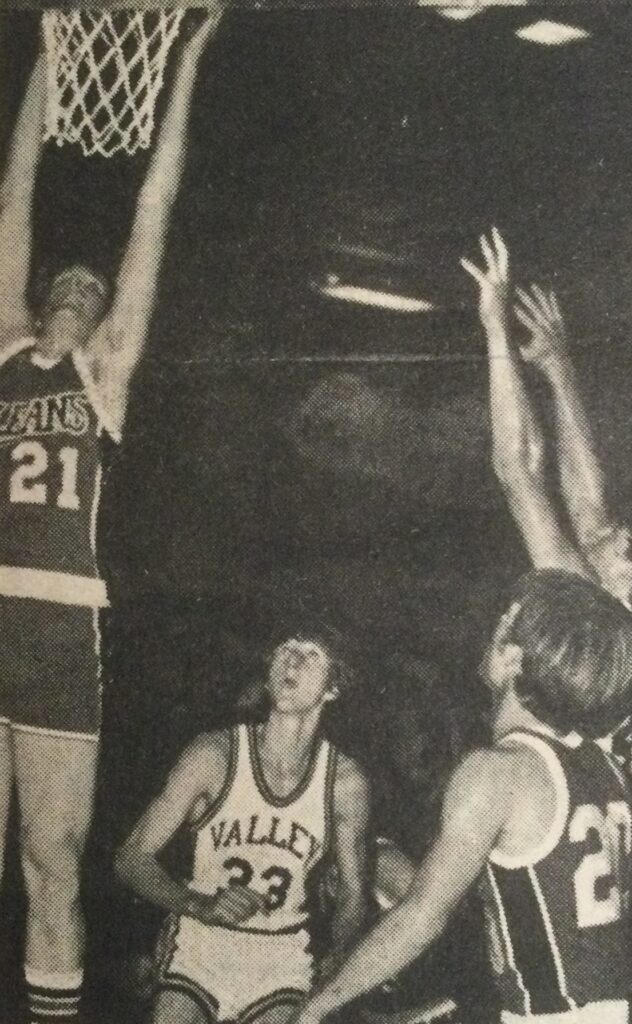
Perhaps the most interesting victory over Larry and his teammates was accomplished by the Washington High School Hatchets. Washington had been in a down cycle even before Larry Bird’s varsity years. In the 1969-1970 regular season campaign they were 7-13 under Coach Ken Gray, losing 66-33 to bitter rival Loogootee in the sectional.
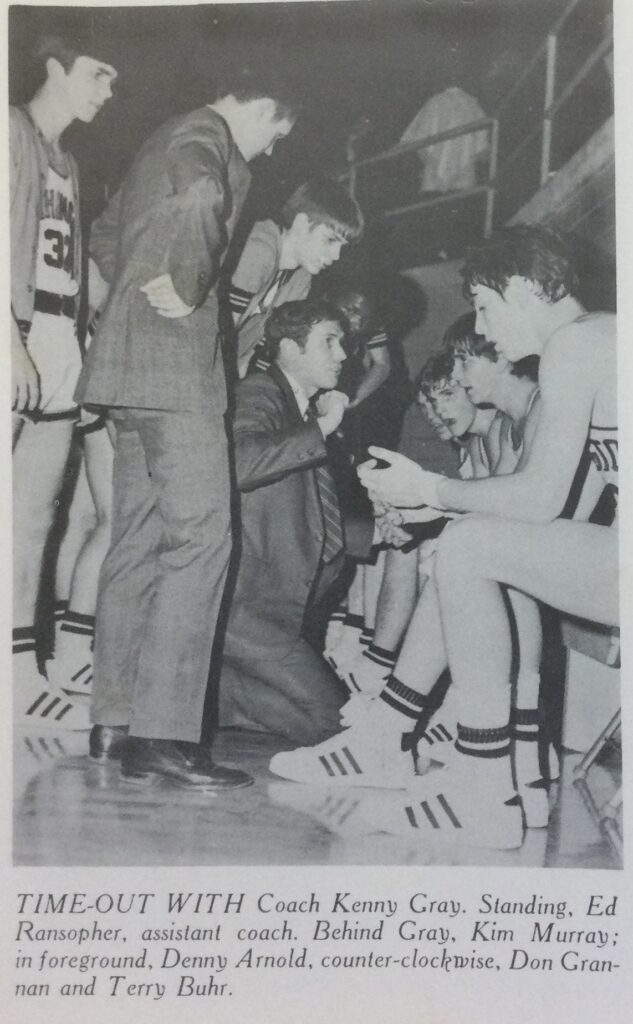
In 1970-1971, the Hatchets started out strong, building up great hope among their fan base and being labeled by one sportswriter “as the toughest Washington crew in many years.” Another writer declared the Hatchets were “back among the area powers.” After stomping Terre Haute Wiley in a holiday tournament, Gray’s team stood 7-3 before the season collapsed around them, leaving them with a 10-10 regular season. The toughest losses included a thrashing at North Knox and another sectional loss to Loogootee.
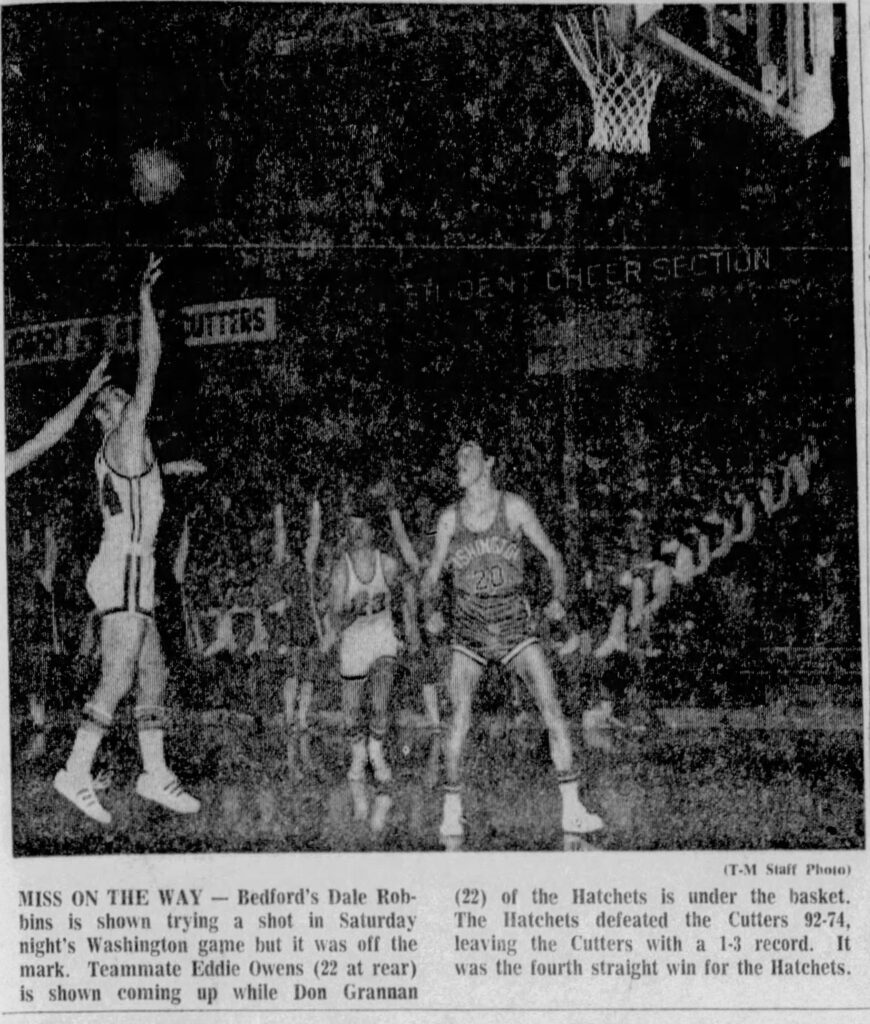
In July of 1971, a new coach was hired by the Hatchets to build back Washington’s winning tradition. He came from southern Illinois and his name was Dick Jones. Interestingly, Dick had started his coaching career at tiny Bluford, Illinois, high school where I attended and played varsity basketball for three years in the late 1960s. After Jones left Bluford, he went to McLeansboro, where he coached football and basketball and helped develop athletes such as Jerry Sloan of future NBA playing and coaching fame; Jim Burns, a star player at Northwestern University; and future NFL player Carl Mauck, among other great stars.
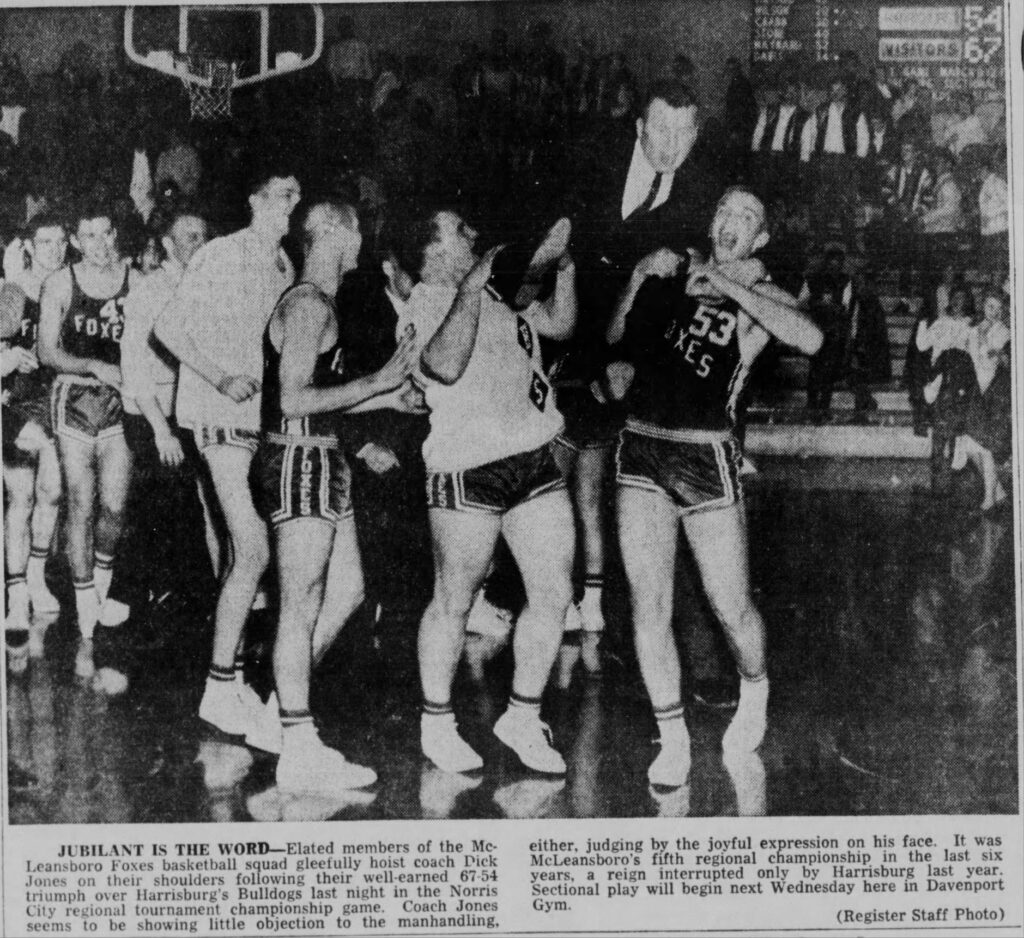
At the beginning of his first year coaching high school basketball in Indiana, Coach Jones had three top players out with injuries, and Washington lost its first three games. Once everyone was well, Jones started Don Grannan, Richie Wonder, Terry Buhr, Kim Murray, and Danny Arnold. The Hatchets then won their next four contests before ending up with a 12-10 season, the best Hatchet record in four years.
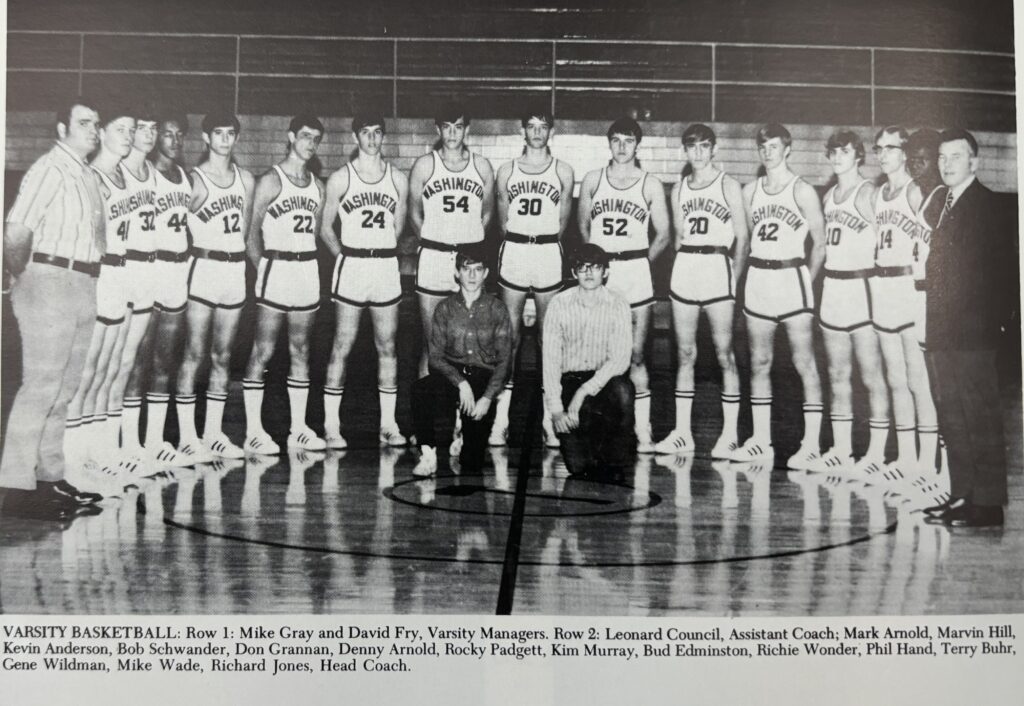
Valley/Hatchet tilts were always nail biters during this duration. The Blackhawks beat Jones in his first year at Washington by a single point, 58-57. Steve Land, a junior, led the Blackhawks to victory with 22 points, making all his free throws and his last eight attempts from the field. Washington’s Kim Murray had 17 points and was the leading rebounder in the close battle.
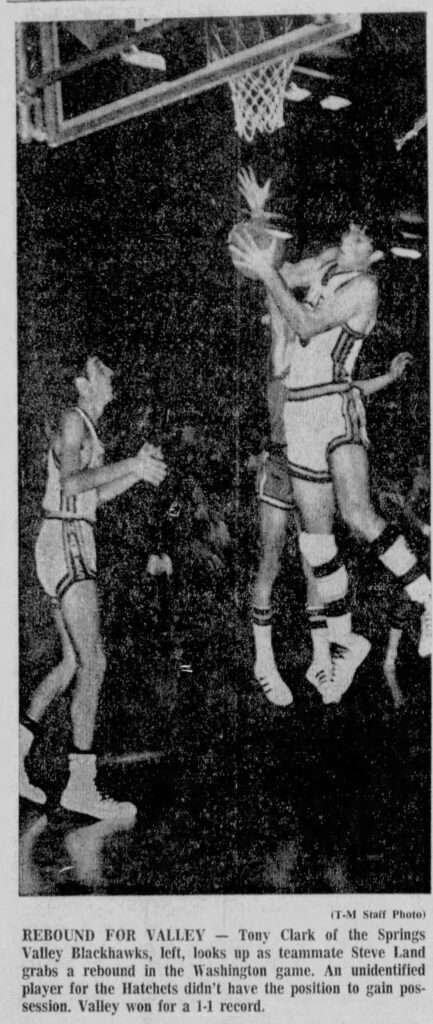
The next year Valley won the annual early season game with the Hatchets in an overtime, Land getting all four tips at the start of the quarters and then in the overtime round. Junior Larry Bird “gave Valley fans quite a thrill with four straight baskets from deep in the corner” in a third quarter scoring binge reported one sportswriter, keeping the Blackhawks in the game, but Valley could not put the Hatchets away.
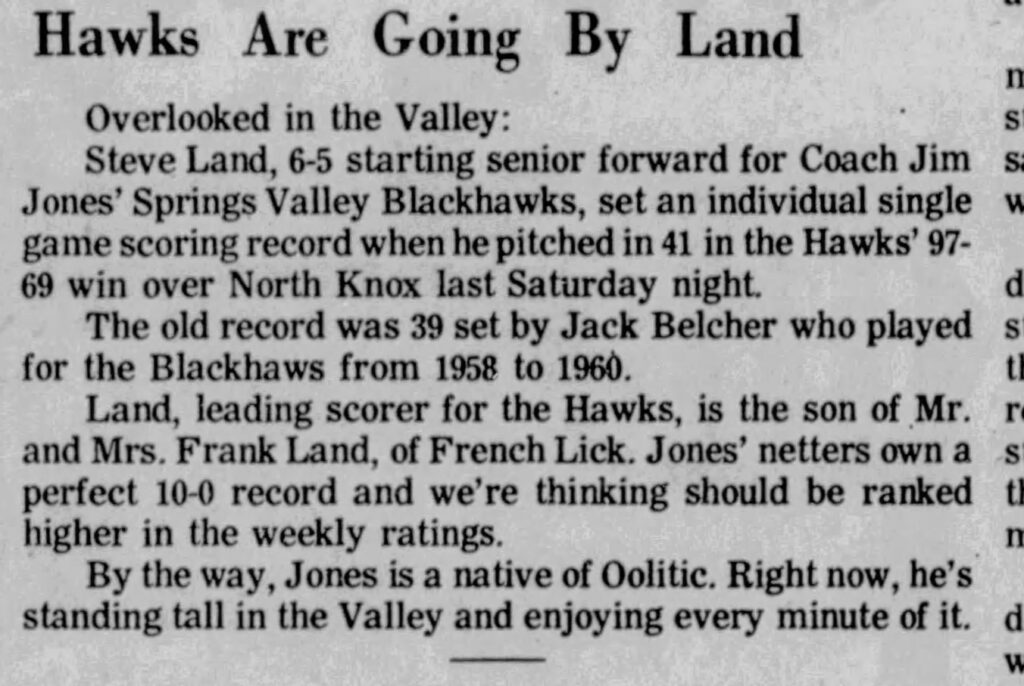
Washington was still ahead as the last seconds ticked down until Steve Land tied the contest with a late shot to send the contest into overtime. Then Land scored two key baskets in the extra session to bring Valley the win 74-72. Land and Bird shared scoring honors with 16 points each.
The game was played on Thanksgiving eve in 1972, and the Paoli newspaper carried this sports headline the next day- Blackhawks Bury Hatchets by giving them the Bird. Dick Jones would be replaced as coach at the end of the year, having a less than break-even season and again losing to Loogootee in the sectional. Valley’s coach, Jim Jones, meanwhile, was on his way to his best regular season record at Springs Valley of 18-2. The year ended, however, with an unexpected and bitter loss to Orleans in the semi-final round of the sectional. Jim Jones, perhaps from the shock of the unexpected sectional loss, retired from coaching and moved to the AD position.

The next year looked to be one of rebuilding for new Springs Valley Coach Gary Holland. Gone was record setting Steve Land and the two other senior starters, Danny King and Tony Clark. Holland later said local fans thought the Blackhawks would be lucky to win half their games.
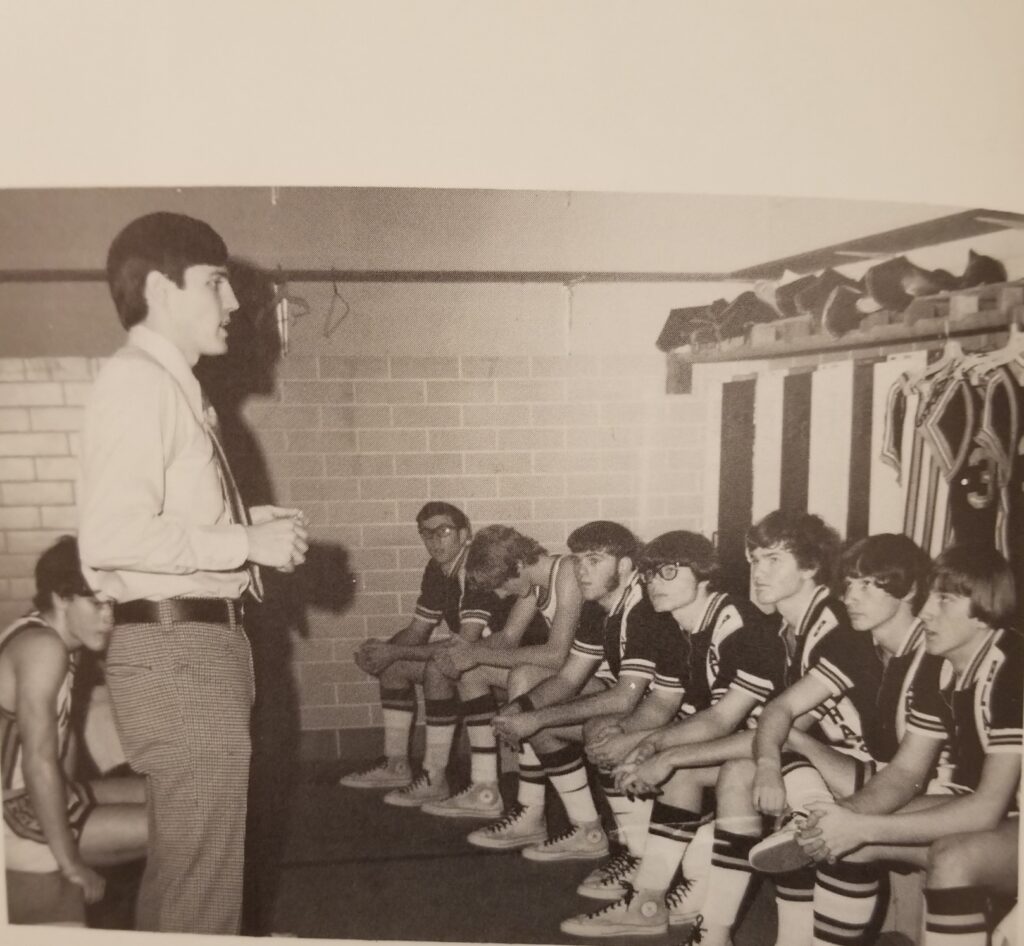
Valley easily beat a Pekin Eastern team in their opening game and then faced the Washington Hatchets in the Valley gym, the Hatchets coached by new head-man Don Rogers. What transpired was a rugged marathon that left players, coaches, and fans exhausted, the contest having more twists and turns than an Orange County back road.
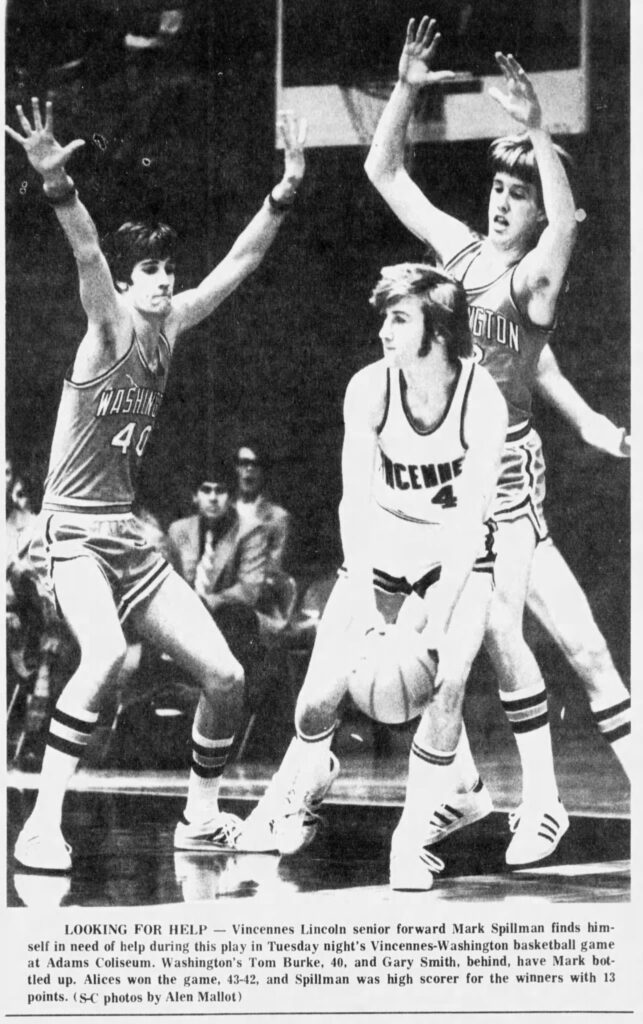
Larry Bird started the fireworks when he blocked a shot, grabbed the ball, and threw it down court to John Carnes who was then fouled and made one of two foul shots. Bird’s block and long baseball type pass brought Valley fans to their feet. Valley seemed to be cruising to a victory at the end of the first quarter, leading 17-11.
By the fourth quarter the lead had changed hands several times and with seconds to go Valley had a two point lead and the seeming victory. Then Hatchet Ron Arnold broke through with a driving layup at the buzzer, sending the game into overtime. Again, Valley was ahead with just a few seconds to go and a two point lead, but the Hatchets stole the ball and Kevin Anderson scored with three seconds to go, sending the game into a second overtime session.
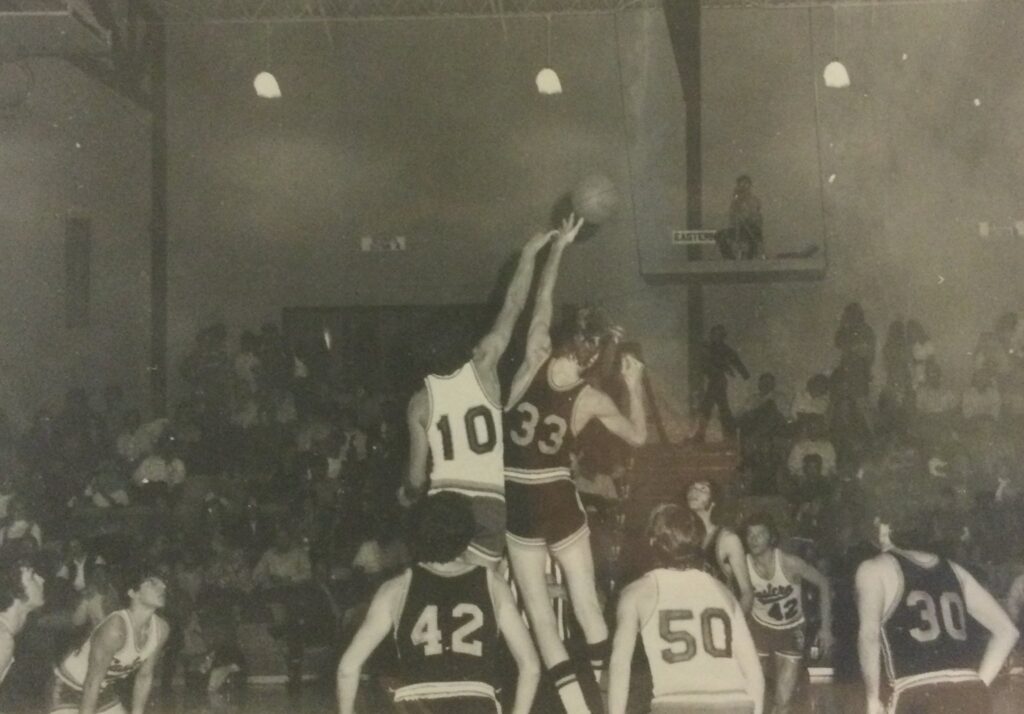
The final overtime was all Washington Hatchets. They ended up winning 80-72 with 5-9 Joe Collison bombing in 34 points. Bird would end up with twenty-seven. Coach Rogers’ team went on to achieve a 8-2 record early in the season before losing six of the seven next contests and ending up with a 13-7 regular season tally. The Hatchets almost gained the sectional crown in their own gym, losing by a single point in a slow-down game against Loogootee, another let-down.
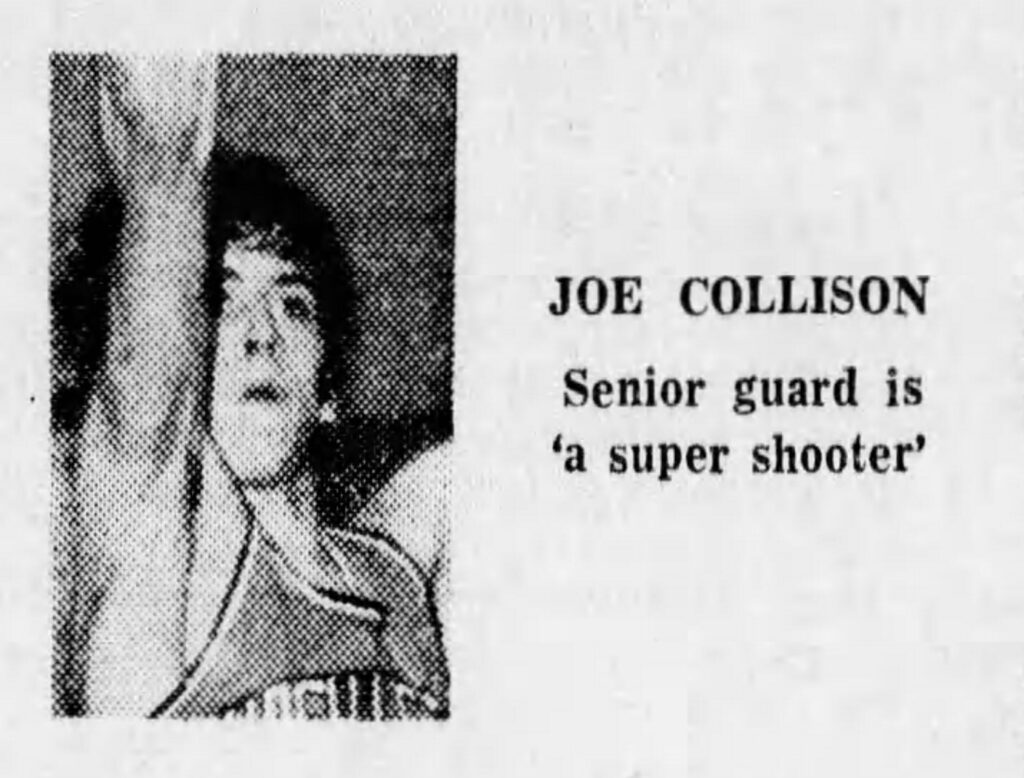
But for all the possible frustration among Hatchet players for not doing better than they hoped in the regular season and at sectional time, the 1973-1974 team could claim something few other teams or players could say, something that looms large in the basketball world— they had beaten Springs Valley and Larry Bird straight-up in an Indiana high school basketball game and nothing, not even the passage of time, can take that accomplishment away from them.
